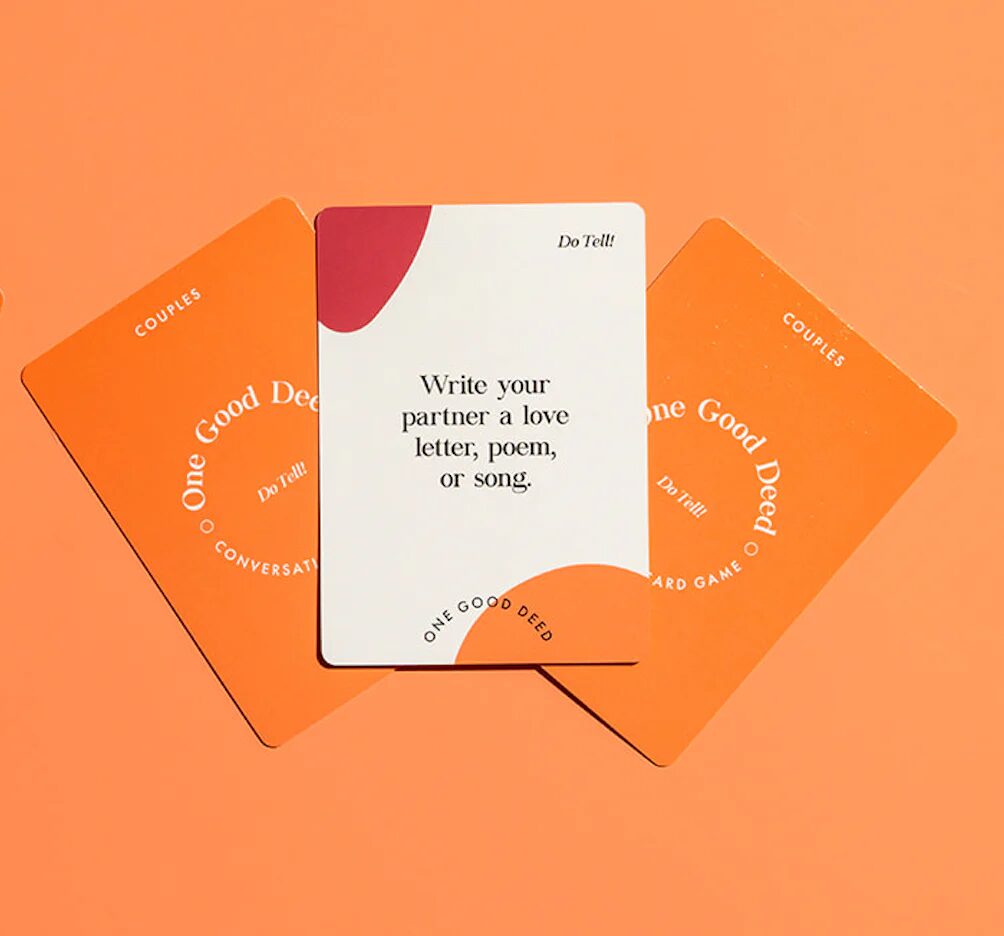By Renee Cherry (via Well + Good)
Platonic connections often play second fiddle to romantic and familial ones. After all, you’re probably more likely to live with a romantic partner than even a close friend for any lengthy period of time (roommates aside), and to have a partner or family member by your side for key life milestones. But in actuality, forming profound connections with friends—finding the Thelma to your Louise, or the Harry to your Ron—can be transformative. And when you’re comfortable asking deep questions of your friends, you’ll be better able to take your friendships to the next level.
“Friendships are wonderful because unlike familial and deep romantic connections, friendships are entirely voluntary,” says Anna Goldfarb, author of Modern Friendship. Whereas literal genetics and your upbringing bind you to your relatives, and a legal contract might tie you to a partner, the only thing keeping you in a friendship is a mutual desire to be in it. “That’s what makes [friendships] special, but that’s also what makes them so vulnerable,” says Goldfarb.
Without the investment of a good deal of time and energy, friendships can fade just as quickly as they started—and there’s plenty of evidence to suggest that peoples’ friendships are indeed suffering right now. Based on data from the American Time Use Survey (a nationally representative survey of more than 200,000 people), the amount of time people engaged with friends IRL dropped2 from 60 minutes a day in 2003 to just 20 minutes a day in 2020; do the math, and that’s a decrease of 20 hours of friend time per month. Unsurprisingly, that trend has coincided with a drop in close friendships and a rise in loneliness across the board.
Experts In This Article
- Anna Goldfarb, journalist and author of Modern Friendship
- Blake Blankbeckler, LPC, licensed therapist and friendship educator
- Brittane Rowe, co-founder of the conversation card game Hella Awkward
- Danielle Bayard Jackson, friendship coach, author of Fighting for Our Friendships, and host of the Friend Forward podcast
- Debra Roberts, LCSW, conversation expert, developer of The Relationship Protocol® communication model, and program creator
- Nina Westbrook, LMFT, licensed marriage and family therapist, and founder of mental wellness platform Bene and conversation card game Do Tell!
Why we’re less deeply connected to our friends these days
Therapist Nina Westbrook, LMFT, founder of conversation card game Do Tell!, cites a couple societal factors that have pulled us away from deep social connection. “One is the continued rise of digital communication,” she says. “While cell phones and social media have enhanced the ease with which we can all communicate with one another, they can also hinder the development of more profound, in-person connections.”

Another reason for our fraying social fabric is hustle culture, adds Westbrook. “Expectations around productivity have led to demanding work schedules, which leaves less opportunity for people to nurture and sustain meaningful friendships.”
Those who still manage to make time for IRL hangouts may also just be wary of getting deep… which can keep social connections feeling more like shallow acquaintanceships than the soul-baring stuff of close friendship. “We’re usually hyperaware of how we’re perceived, and sharing our true selves can feel awkward at times,” says Brittane Rowe, co-founder of the conversation game Hella Awkward. “Deep conversations take effort and vulnerability—sometimes we feel too busy managing our own stuff to delve into someone else’s emotional depths.”
“Deep conversations take effort and vulnerability—sometimes we feel too busy managing our own stuff to delve into someone else’s emotional depths.” —Brittane Rowe, co-founder of conversation card game Hella Awkward
Even if you do feel ready to upgrade a friendship from the small talk stage, it can be tough to know where to start. And that’s where having key questions on hand can help. It’s no wonder Pinterest reported an uptick in searches around “deep questions to ask friends” along with queries like “deep conversation starters” in its 2024 trend prediction report.
Why it’s worth asking your friends deep questions
While it may feel uncomfortable to get deep at first, vulnerability is an important ingredient in the formula for strong platonic connections, says friendship coach Danielle Bayard Jackson. “There’s something called the beautiful mess effect1, which says we tend to like people more after they’ve been vulnerable with us,” she says. “It’s very endearing and humanizing.”
You may find that some friends welcome deep conversations when you first meet them, while others require more time to warm up to you. “There is no right or wrong timeframe of when to start asking your friends deeper questions,” says licensed therapist and friendship educator Blake Blankenbecler, LPC.
In any case, the payoff is likely to be worth your time and effort. Forming a deep friendship “lessens feelings of loneliness and offers a sense of belonging, connection, and more happiness,” compared to a more superficial or surface-level connection, says conversation expert Debra Roberts, LCSW, developer of The Relationship Protocol.
Though spending lots of quality time with a friend might naturally surface some deep topics of conversation, it also can’t hurt to arm yourself with conversation starters. Below, you’ll find 85 deep questions to ask your friends when you’re really trying to get to know them and strengthen your bond, courtesy of the above experts.
